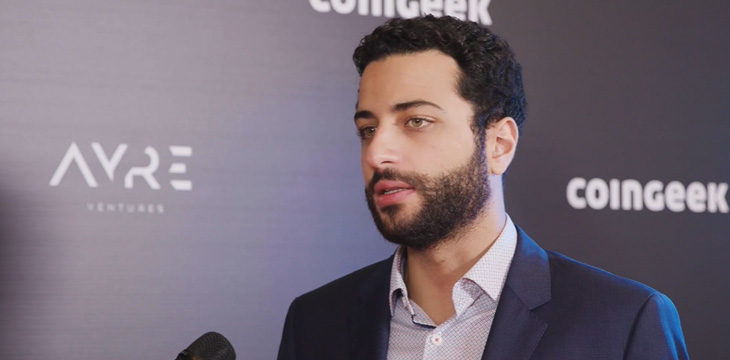|
Getting your Trinity Audio player ready...
|
https://www.youtube.com/watch?v=3sG6yKT0UOQ
As developers continue to put in the hard work to build innovative applications on Bitcoin, Jad Wahab has been just as busy doing the ‘dirty infrastructure work’ to ensure they have a smooth experience. Speaking to CoinGeek Backstage, he shared the progress of the LiteClient Toolbox and why every Bitcoin enthusiast should be excited about its development.
Wahab, the Director of Engineering at the BSV Blockchain Association, is also the lead developer of the LiteClient Toolbox. Described as a set of components that allow for Simplified Payments Verification (SPV), the Toolbox comes with components such as the direct payment protocol, Paymail servers, block headers client, and more.
Speaking to CoinGeek Backstage host Jon Southurst, Wahab revealed that his team is currently working to integrate the LiteClient with the existing applications.
“We’re focused on the internal industry. We want to get everyone in the space speaking the same language. We’re working to get rid of the lack of interoperability and get everything working seamlessly with each other and scalably with SPV,” Wahab said.
LiteClient works in tandem with SPV, the scaling solution for Bitcoin that Satoshi Nakamoto detailed in the white paper. While Bitcoin has always had the ability to integrate SPV, the solution is still not widely used today. According to Wahab, this has a lot to do with the misconception associated with SPV.
“The key missing piece so far has been direct communications,” he noted. This means that when a customer pays with Bitcoin, the merchant has to scan the entire blockchain for the transaction. With Bitcoin SV growing by the day (it’s 5,300 gigabytes at press time), it will get more difficult for the merchants, the wallets, and the exchanges.
The LiteClient Toolbox is thus a critical piece of the Bitcoin puzzle. However, Wahab noted that its development had been forsaken for way too long as Bitcoin developers pursued their applications. Nobody wanted to “do the dirty infrastructure work, and that’s why it’s kind of been neglected so far.”
A key element that has made developing the LiteClient and several other tools and features on BSV possible is its stable protocol. This allows developers like Wahab to build without worrying about the rug being pulled from under them. This stability is also a key factor in why the TCP/IP protocol, which is the protocol today’s Internet is built on, has been such a massive success.
Currently, Wahab and his team are focusing on facilitating an easy and frictionless replacement for the thousands of businesses that use a full Bitcoin node. After the migration, the team will focus on adding new features such as peer sockets that enable payment channels, state channels, multi-sigs, and multi-party payments to send money to millions of people in one transaction.
Watch: The BSV Global Blockchain Convention presentation, LiteClient: Scaling Blockchain with Simplified Payment Verification
https://www.youtube.com/watch?v=-j9Kvvm2xxc

 02-17-2026
02-17-2026 




